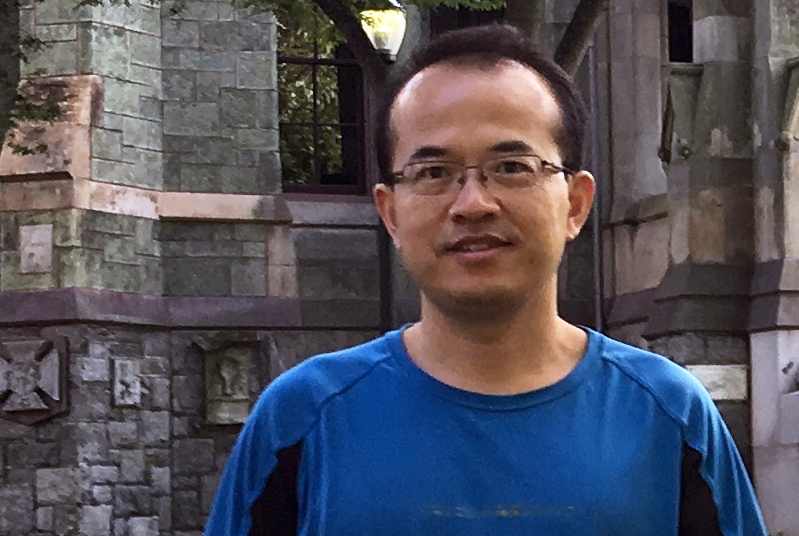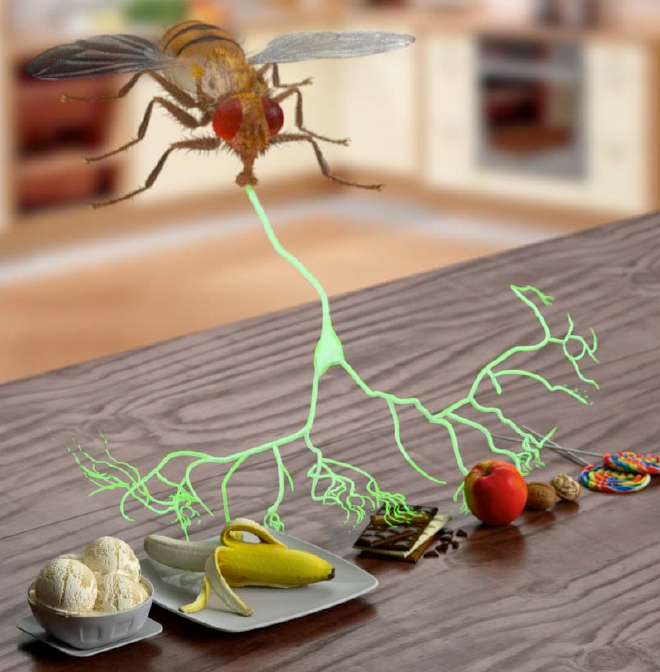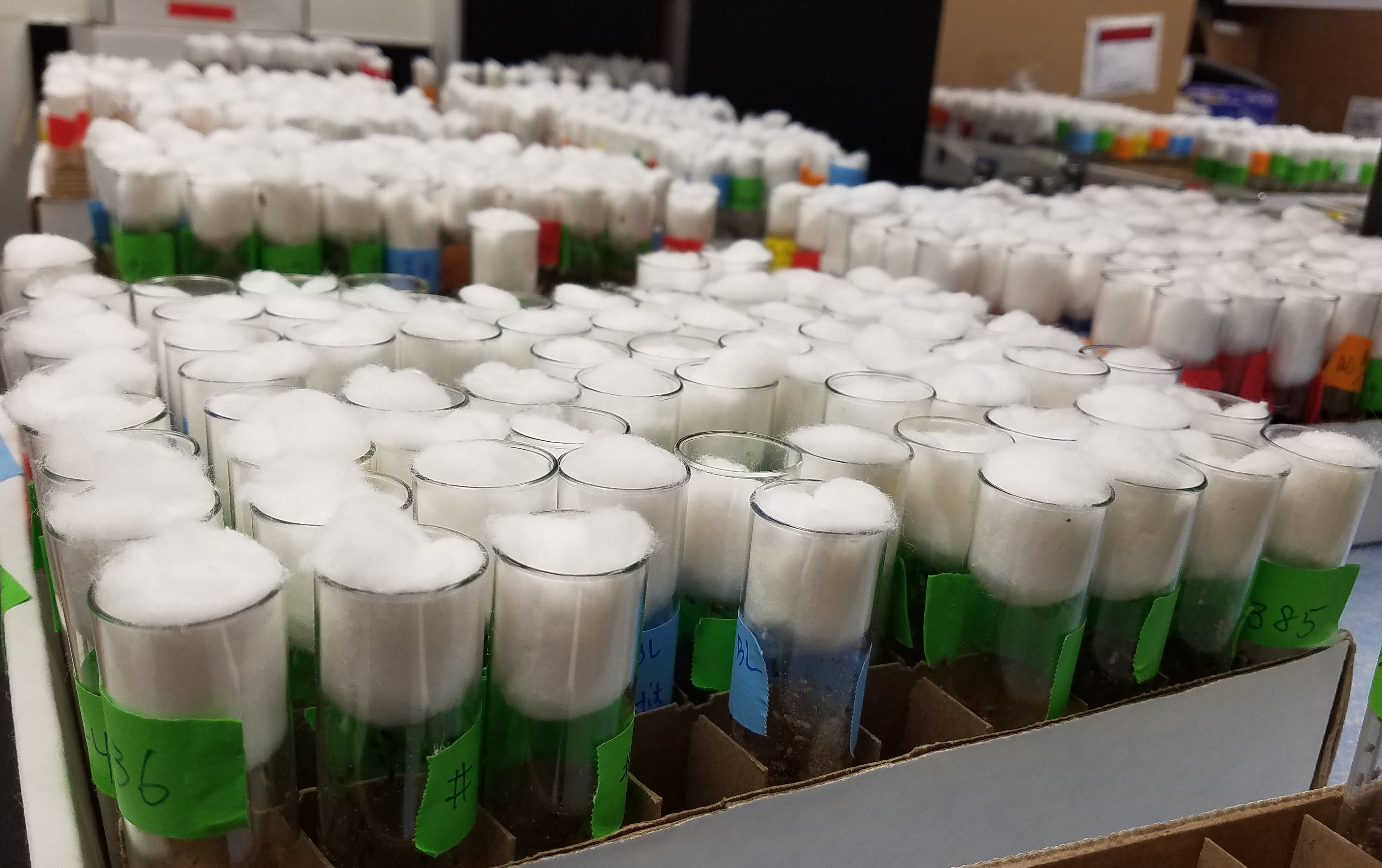Monell’s newest faculty member studies fruit flies to gain insight into how oral perception impacts human feeding behavior and nutrition-related disease
If Monell’s founder Dr. Morley Kare were a fly on the wall of Yali Zhang’s laboratory, he’d be smiling right now. During the 1960s, Dr. Kare became increasingly interested in the senses of taste and smell as he investigated food choice in a variety of species. Now, as Monell is poised to celebrate its 50th anniversary, Zhang’s recent arrival reinforces the Center’s founding commitment to nutritional health.
 Yali Zhang, PhD
Yali Zhang, PhD
Zhang’s model of choice is the fruit fly (technically, Drosophila melanogaster). “I am interested in how organisms detect chemical and physical features of their food environment in order to make appropriate feeding decisions,” he explains. “Fruit flies may look different from humans, but we actually share important taste preferences, such as that for salt. My work with flies will help shape understanding of the molecular and neural basis of human feeding behavior.”
While many of us think of fruit flies as annoying little pests, scientists who study genetics hold the creatures in high regard. Zhang is among the admirers, explaining, “First, flies have a rapid life cycle, less than two weeks, making it convenient to look at changes over a short period of time. Second, we can readily manipulate genes in specific cell types and developmental stages. And finally, while the fruit fly looks different from humans, the functions of many important genes are highly conserved between flies and humans.”
When deciding whether or not to consume a food, both flies and humans sense and evaluate the food’s chemical features such as saltiness or sweetness, and also physical properties such as texture.
By manipulating fruit fly genes, Zhang seeks to gain insight into the molecular, cellular, and neural mechanisms that regulate feeding behavior. His research focuses on two topics: understanding how animals detect and respond to different amounts of salt in their food and exploring how animals sense food texture.
 This whimsical cartoon commissioned by Zhang illustrates a fly evaluating the sensory properties of various foods
This whimsical cartoon commissioned by Zhang illustrates a fly evaluating the sensory properties of various foods
Typically, animals like foods with lower levels of salt and find foods with too much salt aversive. Zhang’s studies examine how organisms discriminate foods with differing salt concentrations.
“Salt really is a double-edged sword,” he says. “At low levels, it is critical to maintaining many functions critical to life, such as the firing of nerve cells in the brain. But if the salt sensory system goes awry, too much salt can lead to many health concerns, including hypertension and cardiovascular disease.”
In addition to taste, a food’s physical properties, such as its hardness and temperature, play a critical role in determining whether it will be eaten and preferred. Do you know anyone who loves smooth peanut butter but absolutely refuses to eat the chunky variety? Using the fruit fly as a model system, Zhang has identified a mechanosensory neuron on the fly tongue that allows flies to discriminate foods of different textures. Ongoing studies seek to better understand how Drosophila’s brain integrates taste and mechanical information to decide whether to eat a potential food.
Zhang believes that by focusing on salt and food texture sensation in the fruit fly, he can provide insight in how these same sensations influence food preferences in other organisms, including humans.
“Yali’s elegant use of the fruit fly Drosophila model extends Monell’s ongoing research on taste and the neural circuits underlying feeding behaviors, and will be a critical component of our new Sensory Nutrition Program. The importance of Yali’s work is exemplified by his publications in top tier journals including Science, Neuron, and Nature Neuroscience. We are delighted to have such a talented scientist begin his faculty career here at Monell,” said Monell Director Robert Margolskee, MD, PhD.
Zhang became interested in sensory biology as a graduate student at Johns Hopkins. After receiving his PhD in Biochemistry, Cellular, and Molecular Biology, he then spent several years as a postdoctoral fellow at the University of California, Santa Barbara.
Since arriving at Monell in September, Zhang’s focus has been on getting his lab up and running, including renovations and the purchase of specialized equipment for electrophysiology, molecular biology, and of course for raising flies.
 Benches in Zhang’s lab at Monell support hundreds of fruit fly-containing test tubes
Benches in Zhang’s lab at Monell support hundreds of fruit fly-containing test tubes
He also has hired a research technician, John Mack, and recruited a postdoctoral fellow, Ting-Wei Mi, PhD, who will focus on the molecular and neural mechanisms that underlie sensing food texture.
Looking forward, Zhang expects to take advantage of all that Monell has to offer a rising young taste scientist. “Monell is a world leader on basic and translational research related to taste and smell,” he says. “My goal is to take advantage of the intellectually stimulating atmosphere, the outstanding scientific minds, and the many collaborations available to advance our understanding how oral perception impacts nutrition-related health disorders.”
